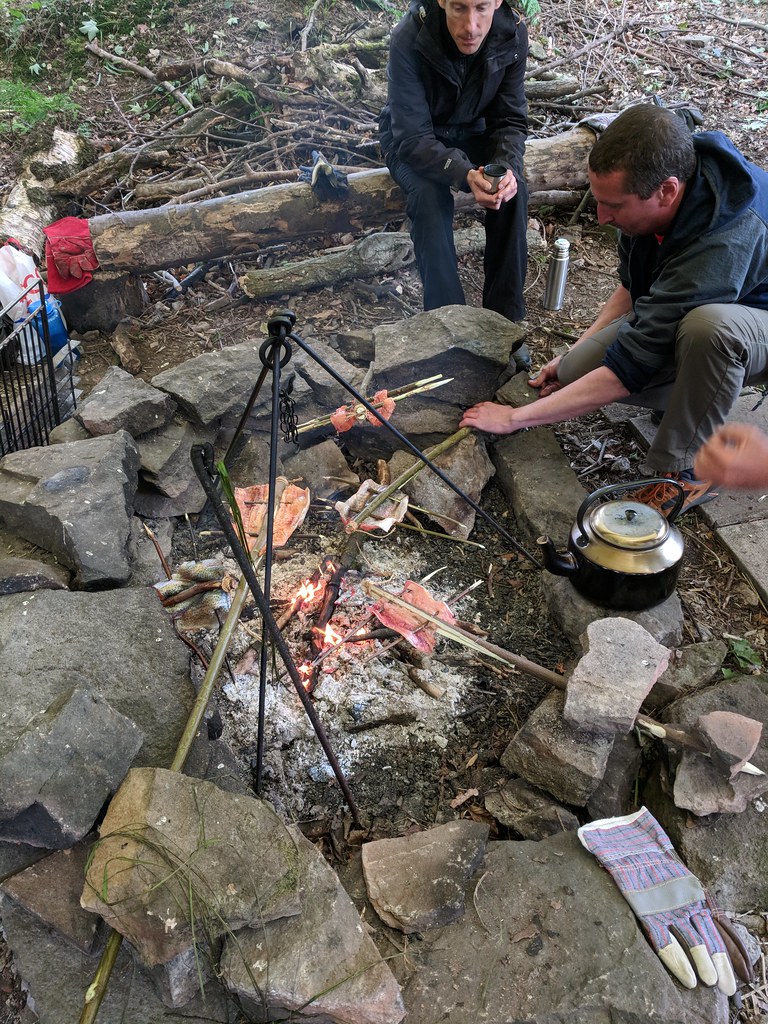Bushcraft is more than a skill; it’s a way of connecting with nature and thriving in the great outdoors. For beginners, mastering essential bushcraft skills is the key to enjoying a safe and fulfilling outdoor experience. In this guide, we’ll explore crucial skills that will empower you to navigate, survive, and truly appreciate the wilderness.
Navigating the Wild
Understanding Compass Navigation
Getting lost in the wilderness can be disorienting, but with basic orienteering skills, you can confidently navigate your surroundings. Begin by familiarizing yourself with a compass and understanding how to read a map. Navigating the great outdoors using a compass is a skill that opens up a world of adventure. Here are ten essential tips to help you become a proficient compass navigator:
1. Get Acquainted with Your Compass
Before hitting the trails, take the time to familiarize yourself with your compass. Understand its components, from the baseplate to the needle, ensuring you have a solid grasp of its functionality.
2. Map Reading Mastery
A compass is your trusty sidekick to a map. Learn to read topographic maps, interpret contour lines, and correlate them with the terrain. This symbiotic relationship enhances your navigation accuracy.
3. Crack the Code of Magnetic Declination
Magnetic declination, the variance between true north and magnetic north, is a critical factor. Research the declination in your location and adjust your compass readings accordingly for precise navigation.
4. Hold Steady, Hold Right
Proper compass handling is crucial. Keep your compass level and steady, ensuring the direction-of-travel arrow points forward. Align the magnetic needle with the orienting arrow to maintain an accurate heading.
5. Landmark Lock and Walk
Choose a distinct landmark in your desired direction and walk toward it. Regularly cross-check your compass to stay on course. This method provides a practical, on-the-go approach to navigation.
6. Back Bearings for Confirmation
Confirm your location by taking a back bearing on a landmark behind you. The back bearing should ideally be 180 degrees opposite your original bearing, serving as a double-check on your position.
7. Blend Compass with Nature’s Signs
Fuse compass navigation with natural elements. Pay attention to the sun, stars, and prevailing winds. This holistic approach enhances your adaptability, making you a more versatile navigator.
8. Pace Yourself and Dead Reckon
Practice pacing by counting your steps to estimate distances. Dead reckoning involves projecting your location on the map using your compass heading and estimated speed. Regular practice hones your accuracy.
9. Watch Out for Magnetic Distractions
Be mindful of metallic objects, power lines, and electronic devices, as they can interfere with your compass readings. Maintain a safe distance, especially when navigating in urban or densely wooded areas.
10. Stay Current on Navigation Trends
Navigation techniques evolve, so stay informed. Attend workshops, read up on the latest literature, and engage with the outdoor community. Keeping abreast of developments ensures your skills remain sharp and up-to-date.
Incorporating these tips into your compass navigation toolkit will empower you to explore the wilderness with confidence. Remember, practice makes perfect, so embrace every opportunity to refine your skills and embark on a journey of becoming a seasoned compass navigator. Happy trails!
Creating and Following Natural Markers
Nature provides excellent navigational cues. Learn to recognize natural markers like the position of the sun, the direction of prevailing winds, and distinctive landmarks.
Firecraft
Mastering the Art of Fire Starting
Fire is a fundamental element in bushcraft, providing warmth, cooking capabilities, and a sense of security. Explore various fire-starting methods, from traditional friction-based techniques to modern fire starters.
Building a Sustainable Fire
Understanding the principles of a sustainable fire is crucial for leaving minimal impact on the environment. Learn to gather firewood responsibly and create a fire that efficiently utilizes resources.
Shelter Building
Constructing Basic Shelters
In the wild, shelter is your first line of defense against the elements. Explore simple shelter-building techniques using natural materials. Mastering the basics of shelter construction can make a significant difference in your outdoor experience.
Choosing the Right Campsite
Selecting an appropriate campsite is an often-overlooked skill. Consider factors such as terrain, proximity to water sources, and potential hazards. A well-chosen campsite contributes to a safer and more enjoyable wilderness stay.
Wilderness First Aid
Basic First Aid Skills
Accidents happen, and in the wilderness, being your own medic is crucial. Learn basic first aid skills, including treating cuts, burns, and understanding the signs of dehydration.
Building a First Aid Kit
Prepare for the unexpected by assembling a comprehensive first aid kit. Include essentials like bandages, antiseptic wipes, and medications for common ailments. A well-stocked first aid kit can be a lifesaver in remote areas.
Bushcraft Cooking
Cooking Without Conventional Tools
Master the art of cooking in the wild without relying on modern kitchen gadgets. Learn to prepare delicious meals using improvised utensils and open flames.
Foraging for Edibles
Enhance your bushcraft skills by identifying edible plants and mushrooms. Foraging adds a new dimension to your outdoor experience, allowing you to connect with nature through the food you consume.
Water Sourcing and Purification
Finding Clean Water Sources
In the wilderness, access to clean water is non-negotiable. Learn to identify safe water sources, whether it’s a flowing stream or a natural spring.
Purifying Water in the Wild
Equip yourself with water purification techniques, such as using portable filters, purification tablets, or boiling. Staying hydrated with safe water is essential for maintaining energy and overall well-being.
Conclusion
Embarking on a journey to master essential bushcraft skills is a transformative experience. By honing your abilities in navigation, firecraft, shelter building, first aid, cooking, and water sourcing, you not only ensure your safety but also deepen your connection with the natural world. Remember, practice makes perfect, and each skill you acquire brings you one step closer to becoming a confident and capable outdoor enthusiast. So, gear up, venture into the wilderness, and embrace the rich tapestry of bushcraft skills that await you. Happy adventuring!







